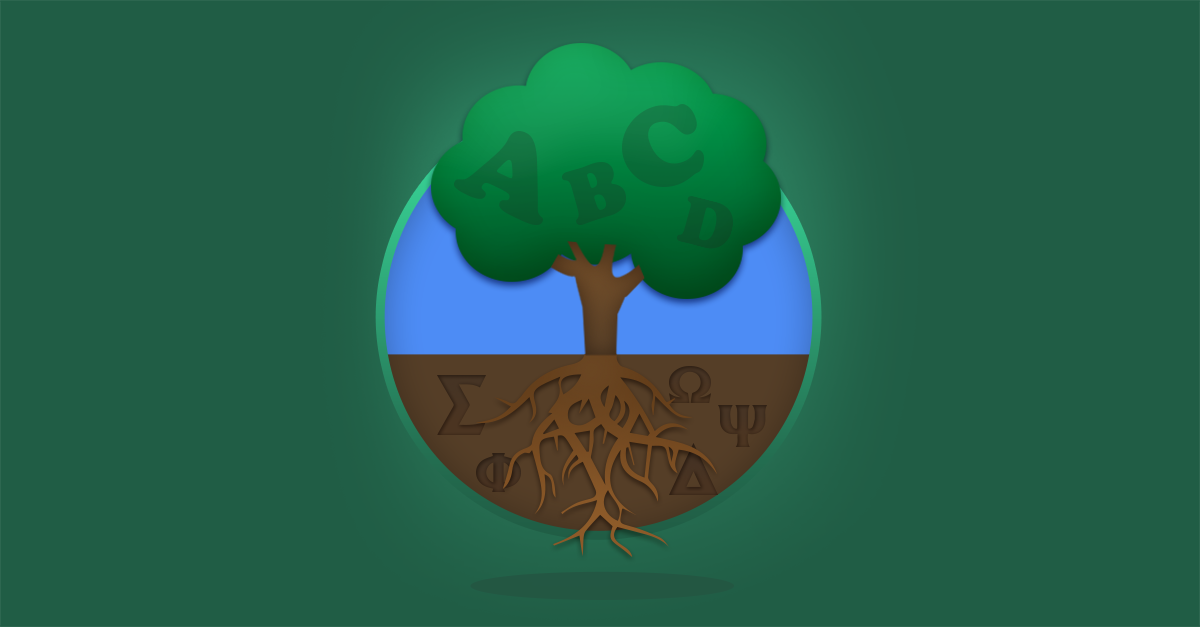
Does Spelling You See teach Greek or Latin roots? Can it be applied to spelling? We answer these questions and more in this blog post.
If you’ve been teaching for any length of time, you’ve probably seen it—the “deer in the headlights” look when a child encounters a new word in a reading selection. Your first instinct is probably to suggest, “Sound it out,” which might be helpful for a word like graze or fleet; however, this strategy isn’t as helpful for an older student faced with a word like spectator or chronicle. Once students begin to encounter longer words, they need to acquire strategies other than “sounding out” to gain meaning from those words. These strategies often involve learning how to break words into parts, including Greek and Latin roots (such as the Latin root spect– in spectator and the Greek word chronos in chronicle). Studying these roots can help students not only learn to read new words but also how to spell them.
Root Study and Spelling You See
If root study is so helpful in learning how to spell, why doesn’t Spelling You See use this strategy in its program? The answer to this question comes from an understanding of the five stages of spelling development. During the majority of the elementary years, students are in the Skill Development stage of spelling. This is the stage in which vocabulary expands dramatically and incorporates more and more words that are not spelled phonetically. The only way that students are able to use the correct spellings of these words consistently is if the words are stored in visual memory. Spelling You See uses research-based strategies to help students accomplish this goal, which includes presenting commonly-used words in the context of an interesting passage.
Consider this example from Americana, a book from the curriculum at the Skill Development stage:
Katharine Bates took a train ride across the country. She saw many beautiful sights. In Colorado she went to the top of Pikes Peak. She was over a mile above the city below. She could see so far that the distant mountains looked purple. The beautiful view gave her great joy. Back in her hotel, she put her thoughts into a poem. It became the song “America, the Beautiful.” (Lesson 28)
You will notice that there are many commonly-used words in this passage that students at this level need to be able to spell, such as country, beautiful, mountain, purple, view, and thought. However, while the words country and distant do have Latin origins, there are no words with clear Latin or Greek roots that can be used as an aid to spelling. The reality is that Greek and Latin roots tend to appear in words at higher vocabulary levels and not in the text that most elementary students are expected to read. Therefore, teaching roots at this level is generally not helpful; students should be focusing instead on mastering the spellings of words they frequently read and write in their everyday experience.
Once students have mastered these spellings, it’s a natural progression to the Word Extension stage, which is covered in Spelling You See’s Modern Milestones. Here students study longer words, first identifying words they have already learned how to spell, either as a base word or as part of a compound word. Then they learn to identify and spell common prefixes and suffixes and how to add them correctly to base words to spell new words. It is only after students become comfortable adding to words they already know are they able to progress to adding to roots, which are not words in themselves. This task is accomplished in the Derivational Constancy stage of spelling, which most students cover in a traditional vocabulary program focusing on Greek and Latin roots and/or in their other studies, which will include more words containing these roots.
Applying Root Study
Some of you may ask, “What if my student is already learning Latin (or Greek)? Can’t we just apply it to spelling?” Before answering this question, I need to stress the difference between language acquisition and language study. If your goal is to have your student read, write, and speak Latin or Greek as he does English, you are focusing on language acquisition. When anyone is acquiring a new language, it generally takes several years to establish fluency. If your student has learned a classical language to this level of competence, it is perfectly appropriate (and even beneficial) to point out the similarities between the two languages as an aid to both reading and spelling. However, it is a different matter if your student is studying Greek or Latin vocabulary and grammar as an academic exercise (“book study”). In this case, it is better to wait to make the connection to English spelling until your student reaches the Derivational Constancy stage and has already mastered the spellings of basic words and the principles for adding affixes correctly.
Does learning Greek and Latin roots help a student with spelling in English? Absolutely! The key is to teach the roots in the correct developmental stage of spelling after the student has mastered the prerequisite spelling skills. Teaching according to developmental level, like the Spelling You See program does, enables students to become competent spellers who are able to express themselves clearly and confidently in their written work.




Leave a Reply